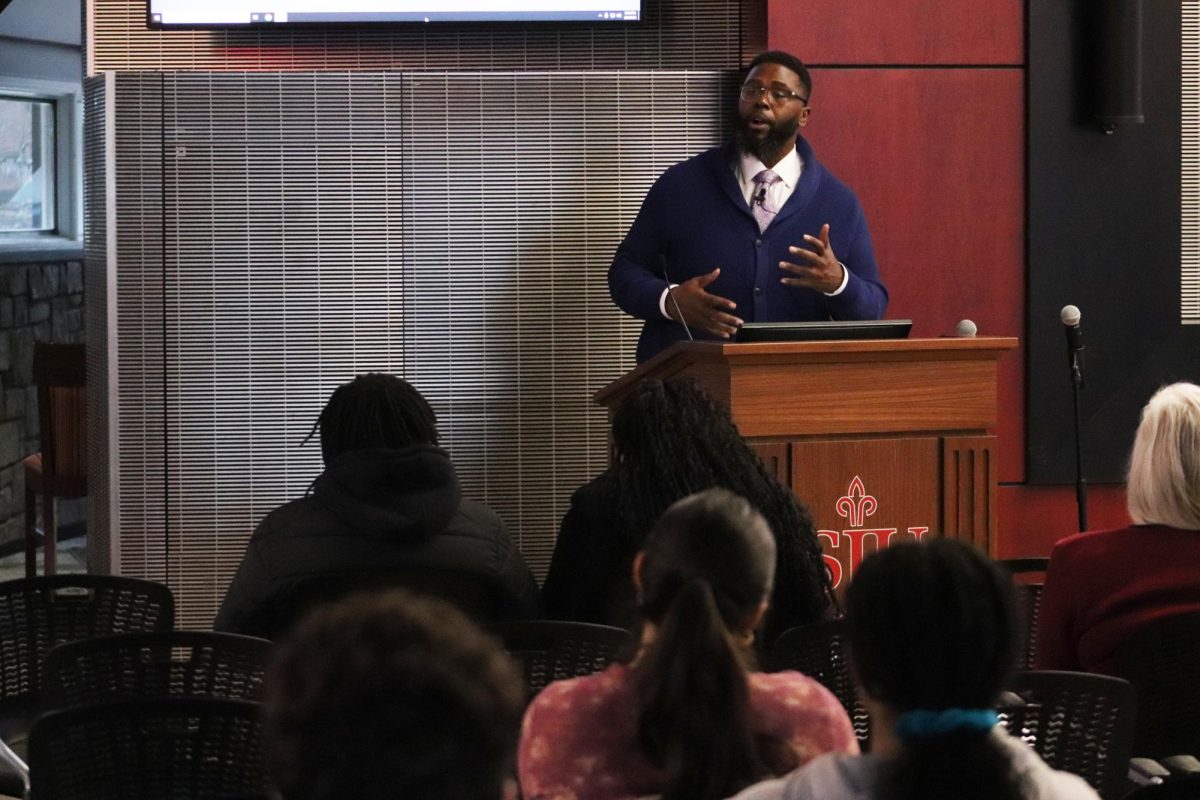Anthony Abraham Jack, Ph.D., led a discussion about his new book, “Class Dismissed: When Colleges Ignore Inequality and Students Pay the Price,” in Cardinal Foley Center Feb. 6. The event was co-sponsored by the Center for Inclusion and Diversity, the Office of the Provost, and the dean’s office of the College of Arts and Sciences.
Jack, a first-generation college student, inaugural faculty director of the Newbury Center and associate professor of higher education leadership at Boston University, discussed how colleges perpetuate inequality through a lack of adequate support for low-income and first-generation college students. “Class Dismissed” examines how these inequities were exacerbated by the covid-19 pandemic and the 2020 protests for racial justice.
“So many of the practices that universities have were created, or at least cemented, when the university looked very different. When it was all male, when it was all white, when it was a much more homogeneous place,” Jack said in an interview with The Hawk. “And so we have to take an affirmative action, affirmative step now to build community.”
Natalie Walker Brown, director for Inclusion and Diversity Educational Achievement, brought Jack to campus as part of her organizing of the ongoing diversity, equity and inclusion (DEI) lecture series. Brown said Jack’s discussion highlighted the importance of DEI on campus.
“Diversity, equity, inclusion and belonging is essential for the student experience. Our job is to be an advocate and a support system and make sure that students, regardless of background, are not falling through cracks,” Brown said. “We want them to succeed. We want them to excel — all of our students.”
Khameir Powell ’27 said he attended the discussion for one of his courses and he also wanted to understand diversity at St. Joe’s because it is different from his experiences attending public schools.
“This is my first private school and Jesuit [school]. Coming to class, it’s only one or two other Black people, other than myself,” Powell said. “I enjoyed [the talk] because it helped me understand that I’m not by myself.”
Christopher Tobias, clinical assistant professor and director of academic education in the physician assistant department, is a first-generation college graduate and a mentor with St. Joe’s first-generation mentorship program, which pairs first-generation students with a first-generation graduate from St. Joe’s faculty, staff or administration.
Tobias said his biggest takeaway from Jack’s discussion was about the prevalence of food insecurity on college campuses.
“I think, as faculty, we automatically assume that everything’s fine, and maybe we should be checking in on that, as it’s a pretty important need when we think of Maslow’s hierarchy [of needs],” Tobias said.
Jack said he enjoys hearing about how other universities support lower income and first-generation college students, as supporting them affects the rest of campus in turn.
“I want to push universities to think more critically about how poverty and inequality shape campus life for their most vulnerable students,” Jack said.














































